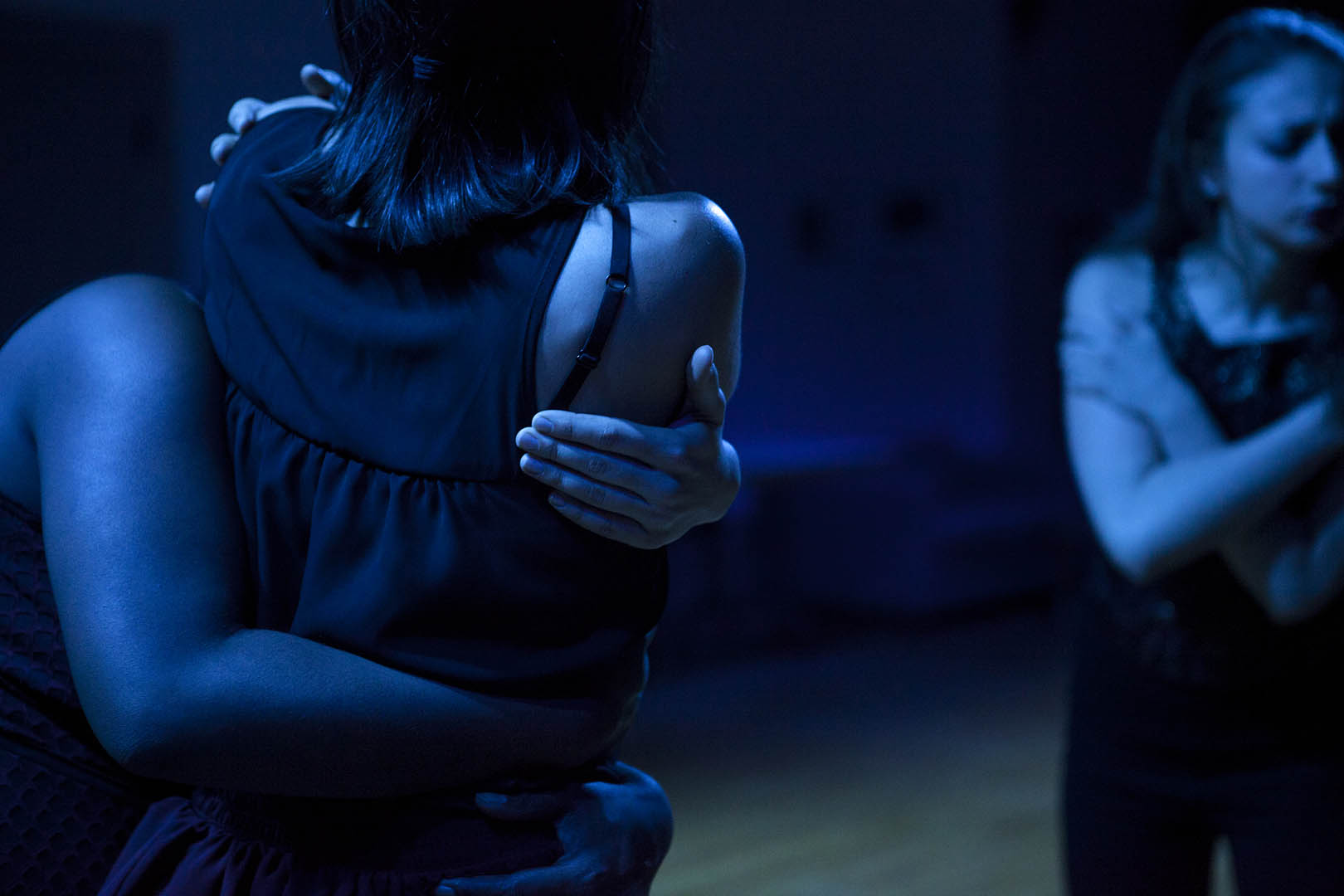
‘Enjoy,’ a black comedy depicting Japan’s ‘Lost Generation,’ opens at Bates

Will Dunbar ’15 (left) of Greenville, S.C., and Colby Harrison ’17 of Kennebunk, Maine, in a scene from the Bates production of “Enjoy,” directed by Brooke O’Harra. (Sarah Crosby/Bates College)
Brooke O’Harra, who joined the Bates College faculty as an assistant professor of theater last fall, directs the Bates production of Enjoy, Toshiki Okada’s black comedy about Japan’s “Lost Generation.”
Performances take place at 7:30 p.m. Thursday and Friday, March 6-7, and Monday, March 10; 5 p.m. Saturday, March 8; and 2 p.m. Sunday, March 9, in Schaeffer Theatre, 305 College St.
Admission is $6 for the general public and $3 for students and seniors, available through batestickets.com. For more information, please call 207-786-6161. “This bittersweet drama,” wrote New York Times reviewer Jason Zinoman, “is distinguished by a style that turns inarticulateness into the sort of poetry that rewards close listening.”
Premiered in Japan in 2006, the play is a glimpse at the lives of college graduates in their 20s and 30s who have been stranded in low-paying dead end jobs by a decade of economic stagnation. It depicts a group of part-time clerks at a comic book shop — a so-called manga café — thrown off balance by a younger female co-worker, who makes them question the meaning of their lives in a shifting socioeconomic landscape.
Presented at Bates in a translation by Aya Ogawa, this black comedy “captures a specific cultural moment in Japan,” says O’Harra. “It’s at this moment when the characters have just turned 30, which has a very specific cultural significance in Japan — you’re supposed to be sort of settled in your life at 30.”
She says, “Because they don’t have full-time jobs, they’re this kind of weird culture that is considered not particularly productive and not dependable, even though it’s not their fault. They can’t get apartments, so a lot of them live in manga cafes if they don’t want to live with their parents.”
“Inarticulate, but also kind of extraordinary.”
Okada is known for writing what one reviewer calls “hyper-colloquial” dialogue — a stream-of-consciousness style marked by incomplete thoughts, constant interruptions and the absence of linear progress.
“It’s inarticulate, but it’s also kind of extraordinary,” says O’Harra. Adding another layer is the tendency of characters to start talking about other characters — and then assuming the personas of those other characters.

Brooke O’Harra, assistant professor of theater, directs “Enjoy.” (Phyllis Graber Jensen/Bates College)
“What’s good about the play is that it uses a kind of invented formal structure to tease out a social moment,” says O’Harra. “He’s taking what feels like a disrupted, stilted, hapless, complicated moment and he’s giving it form. It’s really smart.”
But the play is also replete with playful moments, karaoke singing and even dancing, with Rachel Boggia of the Bates dance faculty helping to develop the choreography.
Enjoy poses a formidable challenge for the Bates students in the cast, who must memorize large chunks of dialogue without the roadmap of a conventional narrative flow. The result will be a production in which the acting is driven less by characterization than a formalized approach to line delivery.
“It’s really good for our student actors to think not in terms of character, but instead in terms of clarity and their relationship to their audience,” says O’Harra, who brought to Bates a rich background in contemporary and experimental theater.
“It’s difficult. For actors to learn a way to perform on a stage or to tell a story that’s nontraditional is really important on the college level, because more and more frequently, contemporary plays really step out of the idea of character and disrupt traditional forms of narrative.”
She says, “It teaches the actors a new way of listening and embodying a script.”





